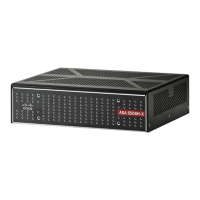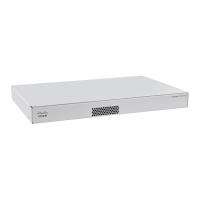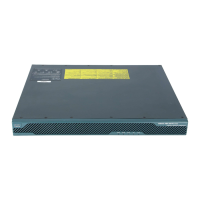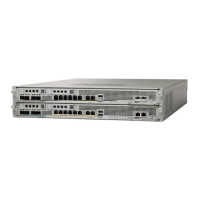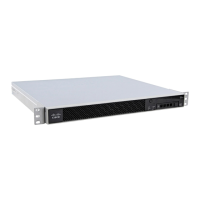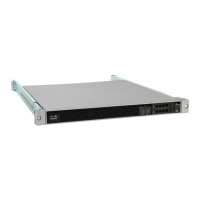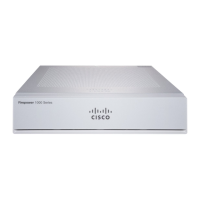1-2
Cisco ASA Series CLI Configuration Guide
Chapter 1 Configuring SNMP
Information About SNMP
OpenView. The ASA and ASASM support SNMP read-only access through issuance of a GET request.
SNMP write access is not allowed, so you cannot make changes with SNMP. In addition, the SNMP SET
request is not supported.
You can configure the ASA and ASASM to send traps, which are unsolicited messages from the managed
device to the management station for certain events (event notifications) to an NMS, or you can use the
NMS to browse the MIBs on the ASA. MIBs are a collection of definitions, and the ASA and ASASM
maintain a database of values for each definition. Browsing a MIB means issuing a series of GET-NEXT
or GET-BULK requests of the MIB tree from the NMS to determine values.
The ASA and ASASM have an SNMP agent that notifies designated management stations if events occur
that are predefined to require a notification, for example, when a link in the network goes up or down.
The notification it sends includes an SNMP OID, which identifies itself to the management stations. The
ASA or ASASM SNMP agent also replies when a management station asks for information.
Information About SNMP Terminology
Table 1-1 lists the terms that are commonly used when working with SNMP:
Table 1-1 SNMP Terminology
Term D escription
Agent The SNMP server running on the ASA. The SNMP agent has the following features:
• Responds to requests for information and actions from the network management station.
• Controls access to its Management Information Base, the collection of objects that the SNMP
manager can view or change.
• Does not allow set operations.
Browsing Monitoring the health of a device from the network management station by polling required information
from the SNMP agent on the device. This activity may include issuing a series of GET-NEXT or
GET-BULK requests of the MIB tree from the network management station to determine values.
Management
Information
Bases (MIBs)
Standardized data structures for collecting information about packets, connections, buffers, failovers, and
so on. MIBs are defined by the product, protocols, and hardware standards used by most network devices.
SNMP network management stations can browse MIBs and request specific data or events be sent as they
occur.
Network
management
stations (NMSs)
The PCs or workstations set up to monitor SNMP events and manage devices, such as the ASA and
ASASM.
Object identifier
(OID)
The system that identifies a device to its NMS and indicates to users the source of information monitored
and displayed.
Trap Predefined events that generate a message from the SNMP agent to the NMS. Events include alarm
conditions such as linkup, linkdown, coldstart, warmstart, authentication, or syslog messages.
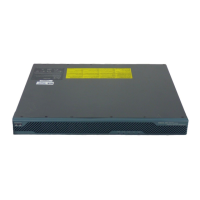
